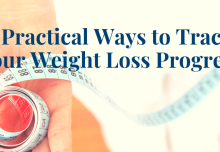We’re a nation of sugar addicts and the numbers are alarming across the board.
On average, Americans of every age consume far too much sugar in their daily diet. In recent years, a spotlight has been shined on sugar as health experts seek to understand the root causes of our national epidemic of obesity and diet-induced health conditions. The US Department of Agriculture, the American Heart Association, and even the World Health Organization, all have shared some not so sweet reports about the effects of excessive sugar consumption. The key takeaway from these experts is that sugar consumption must be dramatically reduced to improve the health and waistlines of citizens of all ages.
The US Department of Agriculture (USDA) recently reported the average American now consumes a whopping 150 to 170 pounds of refined sugars each year. Broken down another way, that equates to nearly half a pound of sugar consumed daily! Add to that the fact that for every American who eats just five pounds of sugar each year there is another who eats a heart-stopping 295 pounds per year. OMG, right!
The American Heart Association (AHA) now recommends limiting the amount of added sugars in an average adult diet to no more than half of your daily discretionary calorie allowance (the difference between total energy requirements and the energy consumed to meet recommended nutrient intakes). For most Americans, this amounts to about:
- 36 grams or 9 teaspoons of sugar per day for the average adult male
- 20 grams or 5 teaspoons of sugar per day for the average adult female
For greater perspective consider that about 100 years ago the average sugar intake for Americans was a mere four pounds per year. Yup, just four pounds!
Leading diet experts believe the drastic rise in sugar consumption goes hand-in-hand with our rapidly expanding waistbands and increasing preventable health conditions. Cutting back on daily sugar intake (added sugars) isn’t only a matter of good sense, it’s also critical to ensuring healthier bodies and weights.
Government Dietary Guidelines for Sugar Consumption
Current government dietary guidelines recommend adults, and children aged 11 and older, consume approximately 30 grams of sugar per day (that roughly equated to seven teaspoons of added sugar per day). Younger children should consume far less. Children aged four to six should consume no more than 19 grams per day (about the sugar found in one pouch of CapriSun), and no more than 24 grams for children aged seven to 10 (around the amount of sugar found in a small Snickers bar).
In particular, the sugar Americans over consume are collectively known as “added sugars”. Added sugars are quite literally added to foods or drinks, and can be found naturally in syrups, honey, and unsweetened fruit juices.





